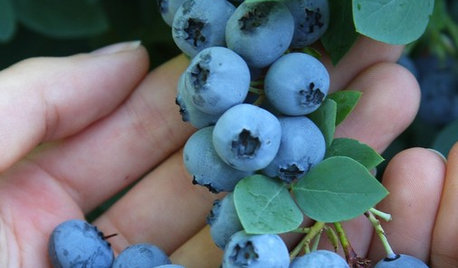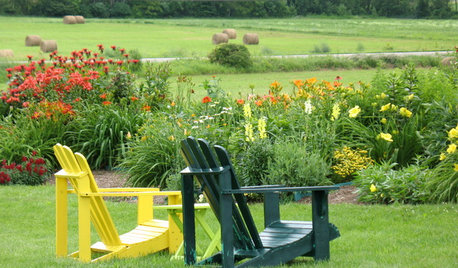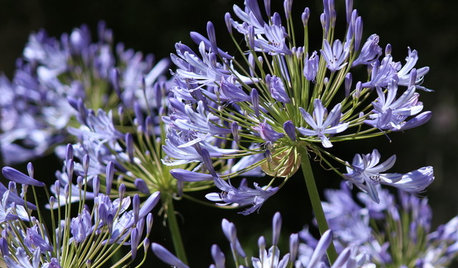Critiques and Evaluations of Named, Available Clivia Hybrids
bronxfigs: New York City/7b
12 years ago
Related Stories

EDIBLE GARDENSSummer Crop: How to Grow Blueberries
Plant blueberries in spring or fall for garden beauty through three seasons — and a sweet superfood in summer
Full Story
NORTHEAST GARDENINGNortheast Gardener's July Checklist
Fire up your garden with sun-loving yellow and red blooms to put you in a party mood for outdoor summer fun
Full Story
REMODELING GUIDESHome Elevators: A Rising Trend
The increasing popularity of aging in place and universal design are giving home elevators a boost, spurring innovation and lower cost
Full Story
GARDENING GUIDES8 Plants That Snobs Love to Hate — and You'll Love to Grow
Don't dismiss these common annuals, perennials and shrubs — there are reasons they've been popular for so long
Full Story
DECLUTTERINGTame the Toy Chaos: Bin Storage for All
New project for a new year: With bins, totes and shelves, a clutter-free playroom can be yours
Full Story
ARCHITECTUREDesign Practice: Getting Paid
Pro to pro: Learn how to manage contracts and set up the right fee structure for your work
Full Story
FURNITURE10 Reasons to Love Big, Comfy Sectionals
With their soft lines, visual heft and casual versatility, modular sofas are a great choice for many rooms
Full Story
GARDENING GUIDES12 Japanese Maples for a Sunny Garden
The right maple in the right place shines in hot summer sun
Full Story
ROOM OF THE DAYRoom of the Day: An 8-by-5-Foot Bathroom Gains Beauty and Space
Smart design details like niches and frameless glass help visually expand this average-size bathroom while adding character
Full Story
40 Fun Gifts for Your Pet-Loving Friends
Houzz Gift Guide: 40 New Ways to Love Dogs, Cats and Birds in Style
Full Story

Ohiofem 6a/5b Southwest Ohio
bronxfigs: New York City/7bOriginal Author
Related Professionals
East Rancho Dominguez Landscape Architects & Landscape Designers · Grand Haven Landscape Architects & Landscape Designers · Saint Charles Landscape Architects & Landscape Designers · Williamsburg Landscape Contractors · El Reno Landscape Contractors · Fuquay-Varina Landscape Contractors · Huntington Landscape Contractors · Lancaster Landscape Contractors · South Lyon Landscape Contractors · Suitland Landscape Contractors · Wanaque Landscape Contractors · Bear Driveway Installation & Maintenance · Chattanooga Driveway Installation & Maintenance · Royal Oak Driveway Installation & Maintenance · Winston-Salem Driveway Installation & MaintenanceOhiofem 6a/5b Southwest Ohio
bronxfigs: New York City/7bOriginal Author
CliviaUSA
CliviaUSA
bronxfigs: New York City/7bOriginal Author
CliviaUSA